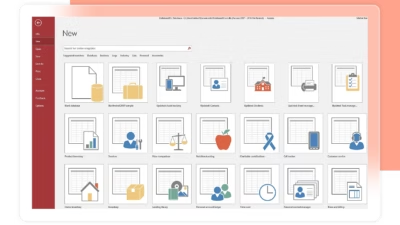Microsoft Excel continues to evolve, and in 2025 it’s more powerful and user-friendly than ever. Whether you’re managing budgets, analyzing data, or just building clean spreadsheets, mastering modern Excel features can save you hours every week.
Here are the best Excel tips and tricks in 2025—covering everything from keyboard shortcuts to AI-powered tools.
1. Use Copilot to generate formulas and summaries
With Microsoft 365 Copilot now fully integrated, Excel can write formulas, build charts, and explain data in natural language.
Example:
Type: “Show me the average revenue per product category for Q2”
Copilot will generate the necessary formula, apply formatting, and even insert a chart.
This is ideal for users who aren’t advanced in Excel functions but still need insights fast.
2. Master the new “Formula by Example” feature
Introduced in Excel 2024 and improved in 2025, this AI-assisted tool lets you write a few sample outputs, and Excel figures out the rest.
Example:
You type how you want names or addresses formatted in a few cells, and Excel applies the pattern automatically to the entire column.
No complex functions or Flash Fill tricks required.
3. Take advantage of Dynamic Arrays
Dynamic arrays allow formulas to spill results into multiple cells automatically.
Useful functions:
FILTER()– extract rows that meet certain conditionsSORT()– reorder data based on a columnUNIQUE()– remove duplicates instantlySEQUENCE()– generate number ranges in one cell
These are cleaner, faster, and more intuitive than older array formulas.
4. Use LET() and LAMBDA() to simplify formulas
If your formulas are getting too long or repetitive, use:
LET()to define variables within a formulaLAMBDA()to create custom functions without VBA
Example with LET:
=LET(a, A1*1.1, b, A2*1.2, a + b)
Makes your formulas easier to understand and debug.
5. Use built-in data types and smart cards
In 2025, Excel supports rich data types like “Company,” “Location,” and “Currency” directly in cells.
Example:
If you type “Apple Inc.” and convert it to a “Company” data type, you can access fields like Stock Price, CEO, Revenue, etc., by typing =A1.Price.
No need for external APIs or Power Query.
6. Automate with Power Automate and Office Scripts
Combine Office Scripts (JavaScript-based macros) with Power Automate to run Excel tasks in the background.
Example:
- Automatically save and send a daily sales report
- Clean up data in a shared file every time it’s updated
This brings automation to Excel even without VBA.
7. Analyze data faster with PivotTables + Timeline Slicers
In 2025, PivotTables have smarter grouping and now integrate with dynamic Timeline Slicers—making it easier to filter by date.
Pair that with Copilot and ask:
“Summarize sales by region for the last 90 days and highlight outliers.”
8. Use conditional formatting with icons and formulas
Excel now supports emoji-based formatting, progress bars, and more visual indicators.
Example:
Show a green dot when a project is on track, yellow if delayed, red if overdue.
This is perfect for dashboards and quick reviews.
9. Clean and validate data with the Analyze Data pane
Use the built-in Analyze Data pane (formerly “Ideas”) to:
- Detect duplicate entries
- Spot anomalies
- Recommend pivot charts
- Answer natural language questions like “What’s driving the increase in expenses?”
10. Use Excel online to collaborate in real time
Excel for web now matches desktop performance more closely, with:
- Real-time co-authoring
- Version history
- Comment threads
- Integration with Teams and OneDrive
Collaborate without emailing files back and forth.
Excel in 2025 is smarter, faster, and more connected than ever. By combining new AI-powered tools like Copilot with classic features like PivotTables and formulas, you can eliminate repetitive tasks and unlock deeper insights.



